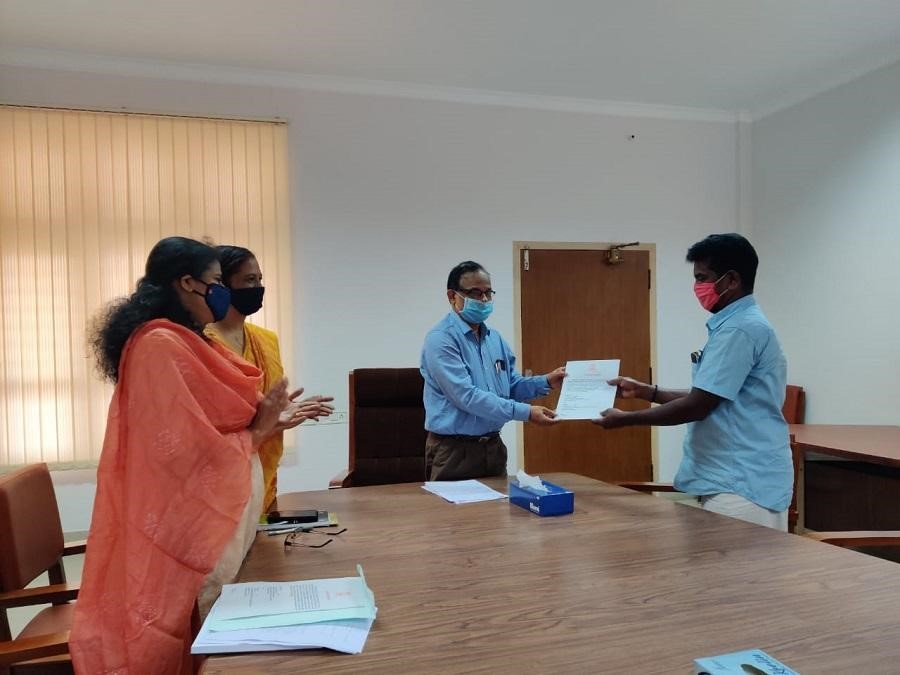
Extension Activities
- Home
- Extension Activities

CUSAT Joins Hand with IIT Jodhpur for Developing Indigenous G Filter Materials
In India, pottery is a community-based profession. This skill is passed from generation to generation. The imminent thought of the possible loss of family profession due to the adaptation of other water filtration/purification methods prompted researchers working towards this ceramic water filter project to arrest the feasibility of a cottage industry based factory for clay-ceramic water filter production.
Polymer Membranes - Performance enhancement using modified surfaces, mono-layer and multilayered (layer by layer assembly) build-up, bio material development, membrane fouling, pressure-driven separation processes-MF/UF/NF The health of water and air - Ionic and organic content on fresh water and low saline water bodies, Eco restoration, fluorescence sensors for emerging contaminants, and metal ions. Phosphate enrichment in sediment phosphate /heavy metal influence on bio-accumulation, toxicological studies- protein-pollutant interaction and its health implications, emerging contaminants in indoor air, indoor air quality Water treatment - Removal of emerging contaminants, water recycling in textile industries, grey water, phosphate enrichment, Combined adsorption, advanced oxidation and membrane filtration for the treatment of wastewater.
This will preserve and continue the community profession and instill the factory based water filter manufacture technology to the local potter community. In western Rajasthan, traditionally the potters practice open firing and an up-draught open-hearth furnace, for firing the filter, which will differ from the factory model of water filter manufacture. G filter technology is a very collaborative thought process developed for traditional and rural industrial development and upliftment.
Frustum shaped clay ceramic water filters are being manufactured by the potters of the Thar Desert in India for household use. The clay composite consists of a homogeneous mixture of an equal volume of clay and sawdust. A low-cost manual press, to form the clay composite into a frustum shape, is developed by the researchers of IIT Jodhpur in collaboration with CUSAT.
The main collaborators are Prof. Anand (IIT Jodhpur) and Prof. Usha K Aravind (CUSAT). The G filters thus developed are found to be excellent in the removal of biological contaminants. School of Environmental Studies, CUSAT further plans to transfer this manufacturing technology to the local potter community. In this context,
CUSAT procured moulds from IIT Jodhpur for the development of such filters using indigenous materials with the knowledge of the Kerala Potter community. The major aim is to revitalize the cottage industry in Kerala.